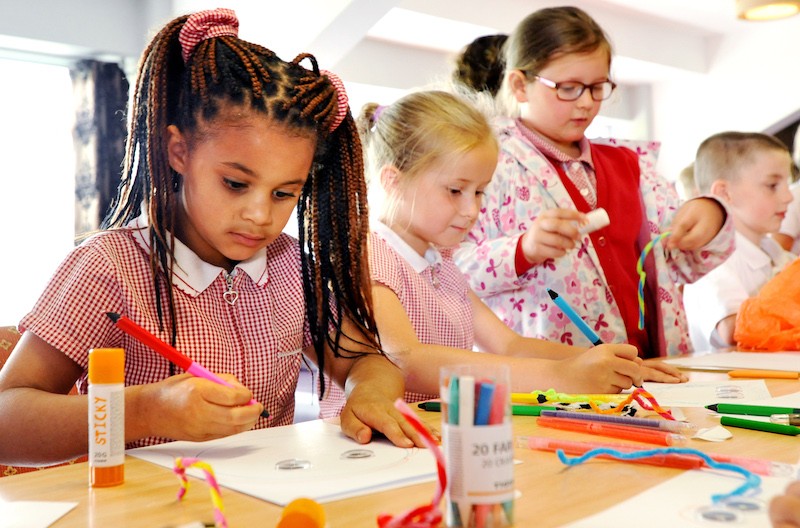
The National Literacy Trust has today published research showing that children who enjoy writing and who write creatively outside school do significantly better in the classroom. However, the research also shows that far too many children are missing out on these benefits, as half of pupils (49.3 per cent) say they don’t enjoy writing outside school. The research is launched to mark the very first National Writing Day, a campaign coordinated by charity First Story to give children across the UK the opportunities and ideas to give writing a go and experience its benefits.
National Writing Day will play a crucial role in helping children discover that creative writing can be fun and can also boost their attainment, confidence, aspiration and imagination. National Writing Day is coordinated by First Story, a literacy charity who aims to change young lives through writing, and is supported by 35 partners, including the National Literacy Trust.
The National Literacy Trust has published some top tips for parents to help their child develop a love of writing in their free time:
- Be a writing role model and make writing more visible to your child at home. The more adults are seen to be writing, both for a purpose and because it’s something they’ve chosen to do, the more children will be encouraged to give it a go.
- Encourage your child to write about subjects they love, whether that is animals, superheroes, dancing or football. Your child will write best if they write about topics that they know about or that are hobbies.
- Keep a box of writing tools and prompts for your child to use. Fill the box with pens, colouring pencils and notepads. You can also include interesting objects and ask your child to weave them into a story.
- It’s not just about fiction; many children may prefer writing other genres. Your child may prefer to draw a comic strip, write a report of a football match they have watched, or make up a recipe instead of writing a traditional story.
- If your child wants to write a story, laying it out visually can help. Work with your child to develop a ‘story map’ where you draw pictures of key elements of a story in a line and build a piece of writing from there.
- Why not suggest to your child that you make your own family book, newspaper or magazine? Theme it around a recent family trip, holiday or experience and get everyone in the family to contribute a short piece of writing.
- Be appreciative of the time and effort your child has put in to a piece of writing; if they are having fun and feel good about their work they will be more likely to persevere.
- Focus on the fact your child is being creative and writing rather than correcting their mistakes.
- Look out for children’s writing competitions – you can often find them on the National Literacy Trust’s website: www.literacytrust.org.uk/competitions
The National Literacy Trust has more top tips, advice and ideas for parents to get their child writing on their Word for Life website.
